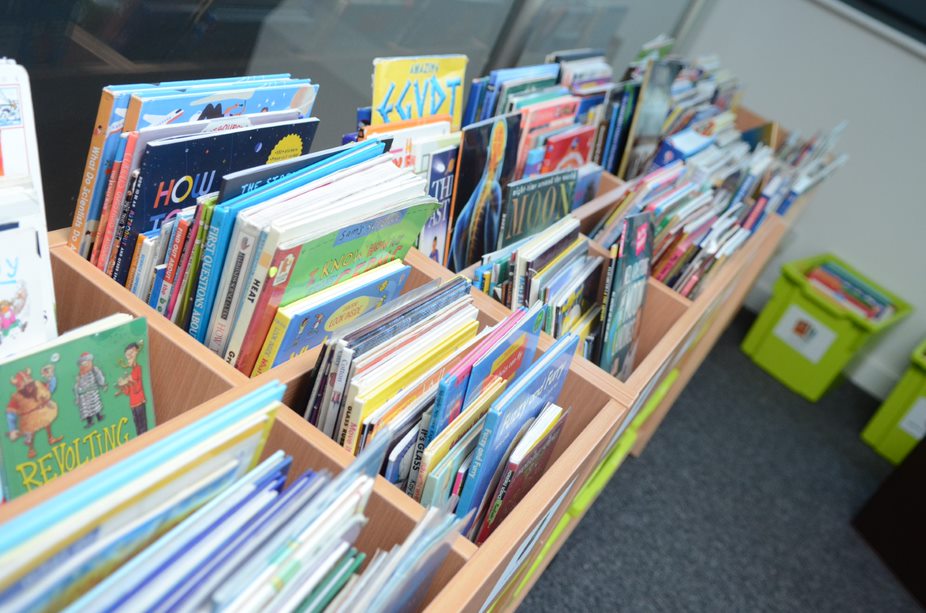


Even the most misfitting child,
Ted Hughes
Who’s chanced upon the library’s worth,
Sits with the genius of the Earth,
And turns the key to the whole world.
Recently, Ofsted published a report revealing how high-performing secondary schools have helped poor readers achieve a grade 4 or above in English Language GCSE. Inspectors found many factors that contributed to pupil success, but the teachers they spoke to were keen to emphasise the importance of the school librarian, who played an active role in supporting struggling readers and promoting reading for pleasure.
This adds to a significant body of evidence that shows how school libraries improve pupil attainment and attitudes towards learning. However, provision in the UK continues to be inconsistent. One of the most worrying trends has been the decreasing number of librarians in schools. Even in schools that do have designated library staff, they are not always employed to cover the full school day, or invited to take part in conversations about strategic development, meaning that many school libraries become a wasted resource.
By considering all the benefits the school librarian can bring to your school, you can realise the full potential of your library staff and include them as an integral part of the school development plan, transforming your provision and achieving better outcomes for your pupils.
It is a popular misconception that the school library is just a collection of books. Of course, the library is a collection of all kinds of resources, including magazines, DVDs, computers, eBooks, maybe even the school archives – but it is also so much more than that.
The school library exists to ensure that pupils have equitable and ready access to information and ideas, where freedom of expression and intellectual activity are nurtured and encouraged. It is upon these foundations that a fair and prosperous democratic society is built. This means providing a wide range of resources, as well as space, services, and staff support.
The most important asset of any library goes home at night.
Timothy Healy, former president of New York Public Library
Staff are considered to be the greatest asset in any library. However, in some schools, the running of the library is left to literacy leads, teaching assistants, headteachers, school technicians, office staff or parents. Whilst this is better than no provision at all, professionally qualified school librarians are known to have a greater impact on pupil attainment and literacy levels.
We are all familiar with the stereotype of a school librarian. Maybe we remember them from our own childhoods. They are often thought of as stern and strict, not really doing much beyond shelving books and telling people to “shh!”
Maybe that used to be true in some places, but it is certainly no longer the case. When the pandemic hit, school librarians were relatively well-prepared and ready to adapt, having already expanded their skillset and becoming deeply embedded within the educational community. Case studies from the Great School Libraries website show just how well school librarians responded to the challenges of lockdown, innovating new services and digital resources for their pupils.
The International Federation of Library Associations (IFLA) considers the school librarian responsible for ‘the school’s physical and digital learning space where reading, inquiry, research, thinking, imagination, and creativity are central to teaching and learning.’
In other words, the role of the school librarian is varied, complex, and constantly evolving. Take a look at all the following ways the librarian can meaningfully contribute to your school:
Perhaps making purchase orders and getting rid of old stock sounds like a straightforward process, but there are lots of factors to consider when managing the collection.
School librarians must think about the quality, relevance, and cost of new resources. Are textbooks up to date and reflective of this year’s exam papers? Are digital copies more or less accessible for a certain cohort of students? How is usage monitored and does this inform decisions about the withdrawal of any items?
School librarians may also consider how the school values and ethos are reflected in the collection. This means thinking about the religious character of the school; equality, inclusion and other key policies; even supporting annual events and initiatives that the school gets involved in, such as Mental Health Awareness or Recycle Week.
In a growing knowledge economy, with an ever-expanding quantity of information at our fingertips, information literacy is more essential than ever. This gives pupils the tools to research independently and develop into lifelong learners.
In their role as information professionals, school librarians are uniquely placed to teach children how to develop information literacy skills: from identifying their learning needs and planning their research, to evaluating evidence and presenting their findings.
Information literacy not only prepares pupils for life beyond school, but helps them to complete their current projects and coursework to a high standard. The school librarian can teach them how to navigate the complexities of copyright and plagiarism, whilst making the most of Boolean operators and referencing management software.
With a wealth of knowledge about the library collection, school librarians can help pupils to identify, locate and access resources – even when they aren’t sure what they are looking for. This is essential when pupils are carrying out research, but it can also make a huge difference to their reading for pleasure, especially when the school librarian has an understanding of pupils’ reading ability, targets and interests.
The school librarian should also work in collaboration with teachers to create a book-led curriculum, facilitating teaching and learning opportunities such as inquiry and project work, problem-solving, literacy activities, reading engagement and cultural enrichment, whilst also embedding information literacy across the whole school.
In many schools, the library is considered the beating heart of the community, central to initiatives that raise pupils’ aspirations and support their wellbeing. Engendering a sense of identity and belonging is an essential component of pupil welfare and academic achievement.
As part of their mission to provide ready and equitable access to information, the school librarian should participate in outreach activities to ensure all pupils feel welcomed into the library and know how to use its services. This means participating in campaigns and cross-curricular learning activities, ranging from cultural awareness days to coding clubs.
Equally, the school librarian must consider how to create an environment that is inclusive to all children, fully-equipped with tools, resources and spaces that effectively meet their needs.
Firstly, the school librarian is responsible for teaching pupils how to use the library. But beyond that, the school librarian has a breadth of expertise that can be used to deliver lessons on study skills, critical thinking, online safety, and even professional development for teachers.
In the modern school library, the librarian can also help pupils with the acquisition of IT and digital literacy skills. From computers, tablets, and various hardware, to online learning platforms, photo editing tools and word processing software, the school librarian should always be on hand to offer pupil support, or create video tutorials and user guides for remote learning.
As an advocate for literacy, the school librarian can play a central role in supporting pupils’ reading by carrying out interventions and assessments, keeping track of pupil progress to address their needs and put the appropriate support in place. Combining their knowledge of literature with learning and child development, school librarians can boost both children’s attainment and enjoyment of reading.
The role of the school librarian has certainly progressed since the days of cataloguing books and tidying shelves (although, of course, that is still important). Now, the librarian is directly involved in the school community, engaging with pupils and inspiring the next generation of lifelong learners.
Standing at the centre of school life, the librarian can contribute to your school strategically, offering insight and suggestions to help you achieve your school priorities. Whether you are looking to boost reading outcomes, bridge the digital divide, or plan continued professional development, the school librarian is there, as always, to help.
Google can bring you back 100,000 answers. A librarian can bring you back the right one.
Neil Gaiman